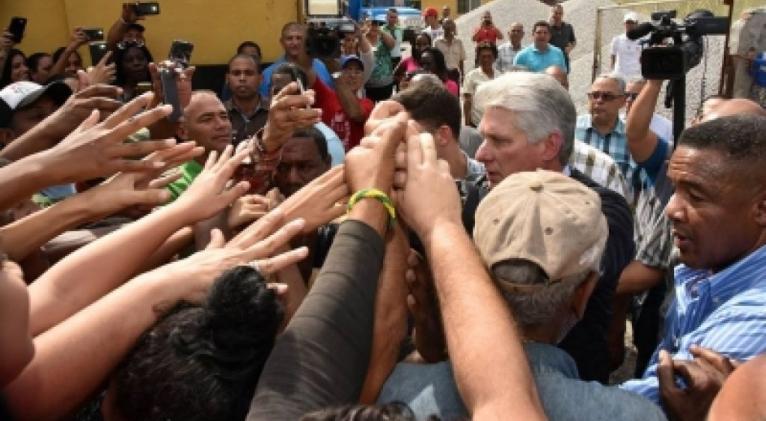Solidarity, beyond the first impetus
especiales

The drama of many of the victims of the tornado that hit Havana last Sunday, January 27 is huge; but it is encouraging to see the immediate and spontaneous solidarity of many people. The challenge is to go further beyond that first impetus.
The wounds of many of the Cubans directly affected by that terrible tornado will take some time to heal: but scars will always remain.
Only the people who have personally experienced a tragedy of such magnitude can put themselves in the shoes of those who lost everything or almost everything in a flash.
Nobody is ready for that, much as television news spaces show victims who, picking up courage, convey encouragement and optimism.
The only solace (and it will always be insufficient) is to feel accompanied and supported in such tough times.
Those who, think that the Cuban people is unable to mobilize itself for solidarity if it is not previously summoned and urged, would have been amazed by the spontaneity and massiveness of the expressions of moral and material support.
Without waiting for someone’s directions, since the huge destruction, many families’ tragedy and the real dimension of the disaster came to light, thousands of people from Havana and other provinces started to mobilize and organize themselves to create chains that could provide the victims with staple items, medicines, clothing and footwear, dissimilar personal stocks and other items.
Social networks are full of pictures and videos, which bear witness the scope of those initiatives. The media have too echoed these specific demonstrations of solidarity of artists, sportspeople, professionals from various sectors, students, as well as anonymous people, whose sole interest is not to appear in a photo delivering their donations, but the simple fact that their contribution reaches those who need it.
Because, certainly, in some cases the willingness to offer help is linked (and even, conditioned) by the publicity of the act of support… certain exhibitionism that hinders the humanism of the gesture.
Perhaps some other “show business” figure has set a staging to appear as a benefactor; it could be… but we should not get paranoid: that will be (should be) a personal dilemma, and fortunately it seems to be a minority.
The volume of that aid should be channeled through local authorities, so it can be delivered to those who really need it. Here is one of the challenges: the integration of the whole social framework, ranging from the people, social organizations, and neighborhood councils to the roughly formal groups that take over those responsibilities.
All aid is welcome
However, a cardinal aspect cannot be forgotten: the main responsibles for providing assistance, those in charge of heading the recovery and reconstruction process, those who have the obligation (and not only the duty or the possibility) to ensure that nobody is left helpless are (must be) the government and its institutions.
There are mechanisms, there are special regulations, there are budget headings, there are reserves… conceived for situations like this.
Obviously, everything cannot be foreseen: it is necessary to adjust schemes, to make accurate decisions and to mobilize human and material resources.
But minimizing the role of government and state institutions, and of the forces of the interior order, would be a nonsense: those authorities will be in charge of keeping the support to the tornado-affected families, when the current enthusiasm from the different sectors of society cools off.
It will be natural, it does not mean that people will stop worrying about their fellow men. But the people (we, those of us who were directly hit) will gradually return to our routines, when the crucial moments of the current crisis are over.
Resilience refers to the capacity of human beings and their society to survive in adversity.
Nevertheless, the problems, the serious problems of many of the affected families won’t be resolved in two or three weeks… nor will the spontaneous generosity of the population completely resolve them.
Hence the importance of a solid and institutional framework, which channels support to the victims, provides fair alternatives for recovery, facilitates access to the humanitarian aid, and guarantees peace… everything under the permanent scrutiny of the citizens.
No Cuban can be left helpless. We must perpetuate solidarity.
Translated by Jorge Mesa Benjamin / CubaSi Translation Staff













Add new comment